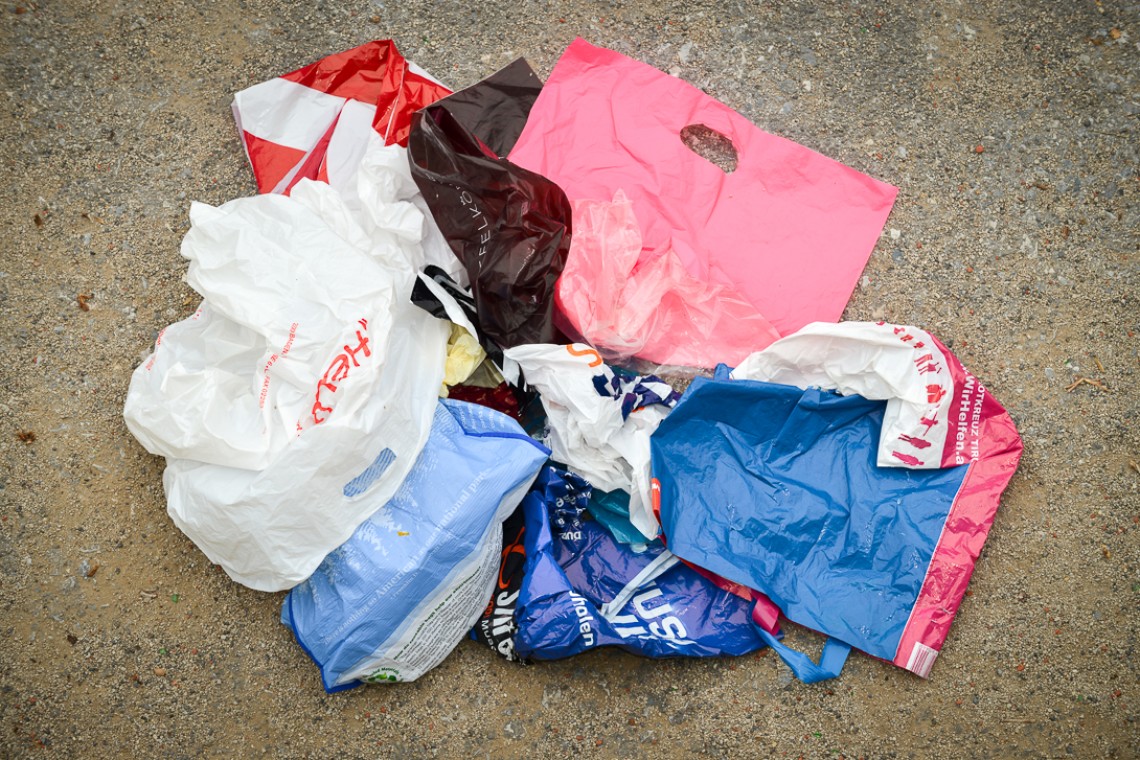Plastic bag ban in Austria as from 2020
The Council of Ministers adopted the ban of plastic bags in Austria as from 2020.

Taking everything into account between 5,000 and 7,000 tonnes of plastic carrier bags of different thickness accrue in Austria annually. In many cases they end up in rivers, contribute to the pollution of areas and spaces (littering) and pose ever-increasing challenges especially to cities and municipalities as well as agriculture and the environment. In Austria alone, more than 100 kilogram of plastics are carried away by the River Danube every day.
The Federal Government now declares war on the environmentally harmful and wasteful use of plastics and launches a complete system change in Austria. A package of measures is to be implemented, among others the ban of non-biodegradable plastic bags. The ban is to enter into force on 1 January 2020.
Concrete objectives
- A ban on plastic carrier bags, except those fully biodegradable, as from 2020.
- Rapid implementation of the Single-Use Plastics Directive of the European Union with suitable product bans and reduction targets.
- A ban on the adding of microplastic particles to cosmetics and cleaning agents as from 2020, unless a (preferred) European solution has been agreed upon by that time.
- By 2025 the volume of plastic packaging must verifiably be reduced by 20% to 25 % compared to the amount of 2016. This concerns mainly the packaging of single-use items and would lead to a reduction by about 60,000 tonnes of plastics. Furthermore, awareness-raising measures are carried out permanently.
Round table with trade chains
Austrian businesses have already launched a few initiatives to combat plastics on a voluntary basis and have set a good example by implementing innovative ideas. The Federal Government now wants to build on these initiatives and encourage all sections of society to cut their plastic consumption. Federal Chancellor Sebastian Kurz, Vice-Chancellor Heinz-Christian Strache and the competent Minister for Sustainability, Elisabeth Köstinger, will invite representatives of the major trade chains and industries to a Round Table discussion for, on the one hand, we need clearly defined rules from politics, on the other hand we must seek common solutions with trade chains and experts. The impacts on retail trade, delivery services or the operators of traditional sausage stands will also be addressed in this discussion. To prevent disadvantages suitable measures to help and assist them will be worked out.
Facts
Which alternatives to plastic carrier bags are there?
Cloth bags, paper carrier bags, shopping baskets, trolleys.
Does the ban cover paper bags?
No, it applies only to plastic carrier bags.
Of which amounts are we talking?
With this measure, 5,000 to 7,000 tonnes of waste from plastic carrier bags would be avoided per year. The measure would also have a huge impact on the “littering problem” (recklessly discarded waste). Packaging: Reduction of 60,000 tonnes by 2025.
Are there any exemptions from the plastic carrier bag ban (e.g. for sausage stands, kebab stands, pharmacies, ...)?
No exceptions will be made for sausage stands, kebab stands or pharmacies. However, together with businesses and enterprises we are working to find solutions and transitional provisions for small entrepreneurs and retail traders.
Which countries (EU and around the world) have already banned plastic bags?
France has had a state-wide ban on non-compostable plastic bags since 1 January 2016. In Italy, plastic bags made of non-biodegradable materials have been prohibited since 1 January 2011 already. Other overall bans exist in Bangladesh, Burundi, Morocco, Papua New Guinea, and Tanzania. In some countries specific types of plastic bags have been prohibited (thick-walled bags in Uganda, thin-walled bags in Kenya and Uganda) or regional bans apply (Hawaii in the U.S.A. or New Delhi in India).
Status plastic packaging
Why do we need to expand the scope of the measures on packaging?
In Austria, some 900,000 tonnes of plastic waste accrue per year of which, presently, about one third is recycled. Packaging accounts for approximately 300,000 tonnes of the plastic waste. A serious and sustainable initiative to reduce plastic waste must therefore always consider plastic packaging.
Status single-use plastics
The EU is taking measures to reduce plastic pollution by introducing stringent new regulations for the use of single-use plastic products. The new regulations prohibit the use of single-use plastic products for which alternatives are available. This concerns among others cotton buds, disposable cutlery, plastic straws, stirrers or balloon sticks. Other bans (for example plastic-coated paper plates) are being negotiated. In addition, measures are taken to reduce the use of the plastic products most commonly thrown away. As regards single-use plastic items for which no alternative is available presently, Member States are requested to take measures to prevent an increase in consumption (e.g. by measures to reduce consumption or by awareness-raising measures, for example concerning take-away food containers).
Status microplastics
Microplastics are plastic particles less than 5 millimetres in diameter. Once released into the environment, they are not degraded there and can enter the food chain (for example in mussels consumed by humans). One of the sources are microplastic beads which are intentionally added to cosmetics and cleaning agents to achieve a cleaning effect and get into the wastewater after having been used. This source is considered as minor, but in some cases substitutes are already available and also bans exist. The major source of microplastics in the environment is tyre abrasion.
In Europe, therefore, producers and the Commission have promoted a voluntary phase-out, but, so far, this has not been implemented area-wide. Some EU Member States (among them Austria, France, Sweden) have requested an EU-wide ban for years, but implementation is not in sight. Austria will therefore explore the possibility of establishing a legal ban on the use of microplastic particles. Such bans already exist in Sweden and France. In Austria, a ban would have to be laid down in the Chemicals Act.
More detailed information on the Council of Ministers in German